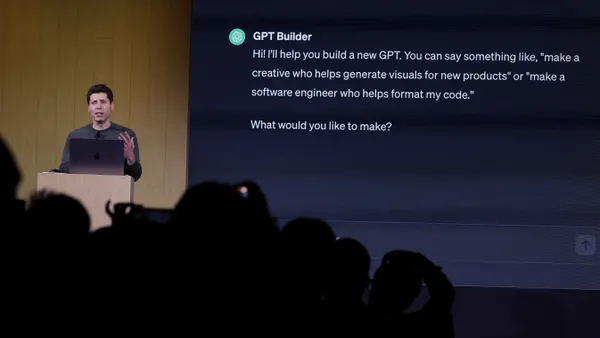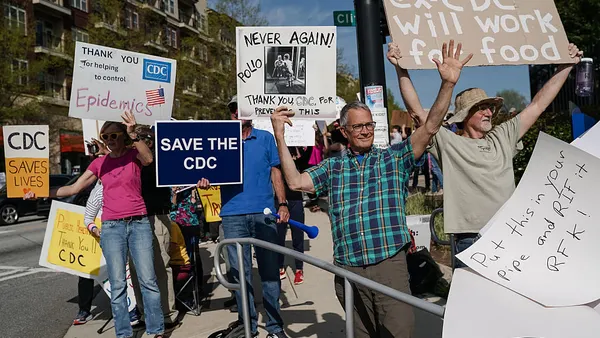Dive Brief:
- Southwest Airlines announced an initiative to help bring aspiring pilots into its ranks. The program, Destination 225°, aims to recruit candidates who want to be pilots and first officers. Southwest will team up with a variety of "well-known industry partners" for the program, the airline said in a statement.
- Prospective candidates can apply for the program, and then progress through different training "pathways" if selected, Southwest said. The Cadet Pathway, for instance, includes classroom and flight training. "The goal of the program is to have candidates qualified and prepared to apply for positions with planned program partners," Southwest said of the Cadet Pathway. The University Pathway partners with four universities in Arizona, Oklahoma and Nebraska, and the Military Pathway builds on military experience and training to bridge the gap to commercial flight readiness. Southwest will also offer the Employee Pathway to train current Southwest staff members for careers as pilots, according to the statement.
- Those selected for one of the programs will be assigned a mentor through their training, join Southwest employees at events and training activities and ultimately apply for first officer positions, Southwest said.
Dive Insight:
Other employers appear to favor Southwest's method of skills training, one that's akin to an apprenticeship program. The Hartford, a financial services company, created a "white-collar apprenticeship" that connects students at community colleges with on-the-job training, classroom learning, mentorship opportunities and, potentially, a future job.
Wisconsin Oven, an industrial oven manufacturer, launched a similar partnership with Gateway Technical College to offer paid training and tuition aid to students and create a talent pipeline for itself. Its move came as a reminder that, in the current labor market, it behooves employers to offer training to possibly under-qualified individuals who may make good workers.
Mentoring is often a hallmark of such programs. More than three quarters of Americans said they think mentors are important, although only 37% reported having one in a recent survey from Olivet Nazarene University.












